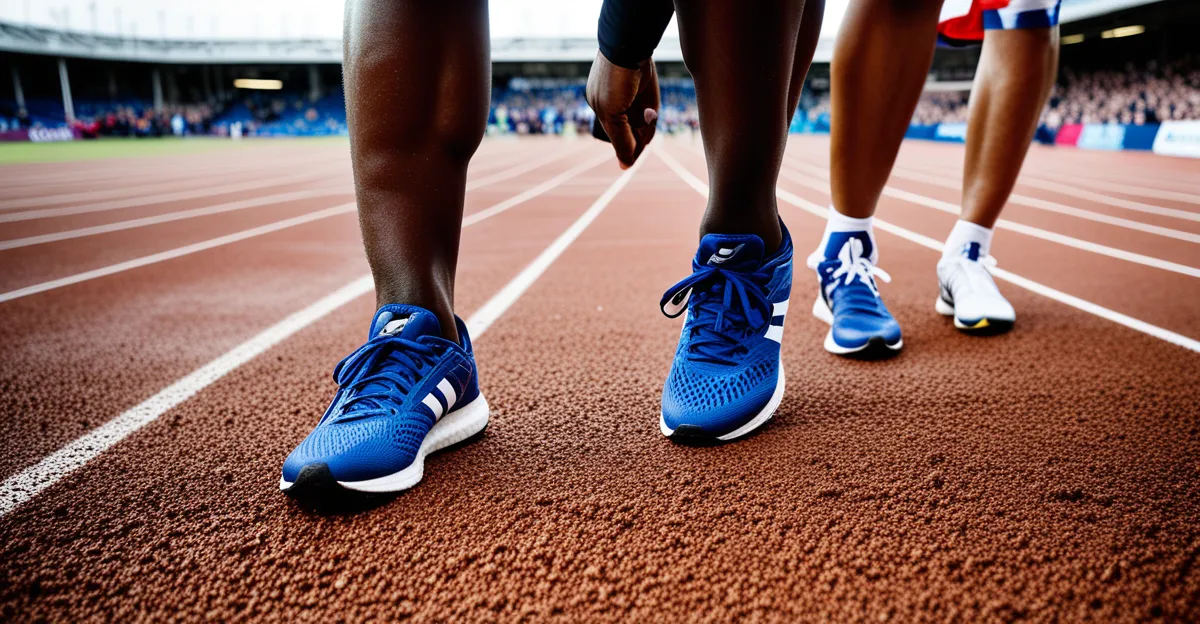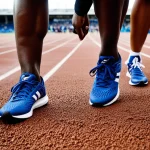Immediate Financial and Funding Pressures for UK Athletes
UK athletes face significant funding challenges that affect their ability to train and compete effectively. Government and lottery funding, traditionally vital for Olympic and grassroots athletes, have become increasingly limited. This shortfall forces many athletes to turn to self-funding, which directly impacts the quality and consistency of their training schedules. Relying on personal finances means some athletes may reduce training hours or forego essential support services like physiotherapy, ultimately risking their performance levels.
Sponsorship plays a crucial role in supplementing income for UK athletes, but the current economic climate has tightened those opportunities. Scarcity in athlete sponsorship deals means less financial stability, pushing athletes into balancing part-time jobs or other income streams alongside their sports commitments. This creates additional stress and detracts from focus, especially for emerging talent still trying to establish themselves.
Additional reading : What Are the Key Strategies for Adults to Stay Fit While Playing Sports in the UK?
In the context of sports finance UK, these pressures highlight a systemic issue where resources are not always aligned with athletes’ needs across levels. Smaller sports often experience greater difficulties securing funding, creating disparities in training environments. As a result, athletes frequently endure unstable financial situations that may hinder long-term career progression despite their potential.
Understanding these funding and sponsorship limitations is essential to appreciating the broader challenges UK athletes confront daily. Addressing these issues requires coordinated efforts from funding bodies, sponsors, and governing organizations to ensure sustainable support that prioritizes athlete development and wellbeing.
Also to read : What role does technology play in modernizing UK sports?
Mental Health and Wellbeing Concerns in Competitive Environments
The athlete mental health UK landscape is increasingly spotlighted due to rising instances of anxiety, depression, and burnout among competitors. Studies show that significant numbers of athletes experience mental health issues triggered by intense performance pressure inherent in competitive sports. These challenges often go unspoken due to the deep-seated stigma associated with mental health in the UK sports culture, where toughness and resilience are traditionally prioritized over vulnerability.
Addressing the stigma is essential to improving mental wellbeing. Many athletes hesitate to seek help fearing it may be perceived as weakness or impact their career prospects. However, this cultural barrier is gradually being challenged by awareness campaigns and open discussions led by former athletes and experts in sports psychology.
New initiatives focus on providing accessible mental health resources tailored specifically to athletes’ needs. These programs integrate psychological support alongside physical training, recognizing that optimal performance requires holistic wellbeing. Investment in qualified sports psychologists within teams has grown, providing targeted interventions like coping strategies for performance pressure, anxiety management, and resilience building.
Support systems also now emphasize proactive mental health care, encouraging early detection of issues before they escalate. Through confidential counseling, peer networks, and educational workshops, athletes are better equipped to navigate the pressures of elite sport. This evolving focus reflects a broader understanding that safeguarding psychological health is as critical as any physical preparation in maintaining long-term athlete success and quality of life.
Navigating Post-Brexit Challenges in UK Sport
Brexit has introduced complex challenges that significantly affect the landscape of international competition UK athletes face. One primary issue is the increased difficulty surrounding travel and work permits, which now require more extensive documentation and longer processing times. This shift complicates athletes’ participation in overseas events and restricts access to key competitions that were previously more accessible. These logistical barriers can delay preparations and affect performance, especially for sports with tightly scheduled international calendars.
Moreover, the Brexit impact sport extends to changes in athlete recruitment and cross-border training arrangements. UK sports organisations have experienced reduced ease in temporarily acquiring EU athletes or coaches due to stricter immigration controls. This has led to shifts in team composition, often necessitating greater reliance on domestic talent pools. While promoting local development has benefits, the sudden adjustment has challenged the competitiveness of UK teams that previously depended on diverse international expertise.
Adjusting to these developments requires proactive strategies from governing bodies and clubs. Many are exploring new partnerships and streamlined administrative support to mitigate burdens caused by altered regulations. Investment in clear communication and guidance about immigration rules has become crucial for athletes and support staff navigating these transitions. The ability to adapt efficiently to post-Brexit realities will influence the UK’s ongoing success in international sport, demanding coordinated efforts to sustain athlete mobility and maintain competitive standards.
Access to Training Facilities and Support Infrastructure
Availability and quality of sports facility access UK vary greatly across regions, creating uneven opportunities for athletes. Urban centres often benefit from better-equipped gyms, tracks, and swimming pools, while rural or economically disadvantaged areas struggle to provide comparable environments. This geographic disparity means athletes in some locations face significant hurdles to reaching elite standards.
Post-pandemic, many sports centres suffered closures or reduced hours due to funding cuts, directly impacting athletes’ support infrastructure. Reduced access limits training time and the ability to receive vital services such as physiotherapy and nutritional advice. For athletes already managing tight budgets due to funding challenges, facility restrictions further compromise their preparation quality.
Barriers also exist for disabled and minority athletes, who often find elite resources less accessible. Adapted training facilities or inclusive programming may be limited, reducing participation and performance potential. Addressing these inequalities requires targeted investment and policies aimed at widening access and accommodating diverse needs.
Improving facility availability and support infrastructure is essential for maintaining athlete competitiveness and wellbeing throughout the UK. Without equitable access to high-standard training environments, the gap in performance outcomes between differently resourced areas and groups could widen, perpetuating systemic disadvantages.
Managing Media and Public Scrutiny
Navigating the landscape of media scrutiny athletes face today is increasingly challenging, particularly as digital platforms amplify attention on UK sports figures. Athletes are under constant observation, where their performances, personal lives, and social behaviours receive intense public commentary. The rise of social media UK sport means that athletes not only perform on the field but also manage their reputations in real time online, exposing them to widespread praise and, unfortunately, also to online abuse.
How does this scrutiny affect athlete performance? Research indicates that excessive negative media attention and online harassment can heighten stress, anxiety, and distract from focus during training and competition. Many athletes report that managing public expectations alongside their sporting commitments creates an additional psychological burden, leading to decreased wellbeing and, sometimes, diminished performance levels.
Professionals advocate for proactive reputation management strategies to support athletes in this environment. These include training on positive media engagement, digital literacy to recognize and handle misinformation, and establishing clear boundaries on social media use. Expert guidance often recommends tailored communication plans that empower athletes to control their narratives and respond constructively when faced with criticism.
Additionally, sports organisations are implementing resources such as media coaching and mental health support to help athletes develop resilience against the pressures of public scrutiny. Encouraging peer support networks and confidential counseling further assists athletes in coping with the emotional toll.
In summary, managing media and public scrutiny requires a multifaceted approach emphasizing preparedness, education, and support systems. By equipping athletes with effective tools to navigate media landscapes and social media UK sport dynamics, they can maintain focus on performance while protecting their mental health and public image.








